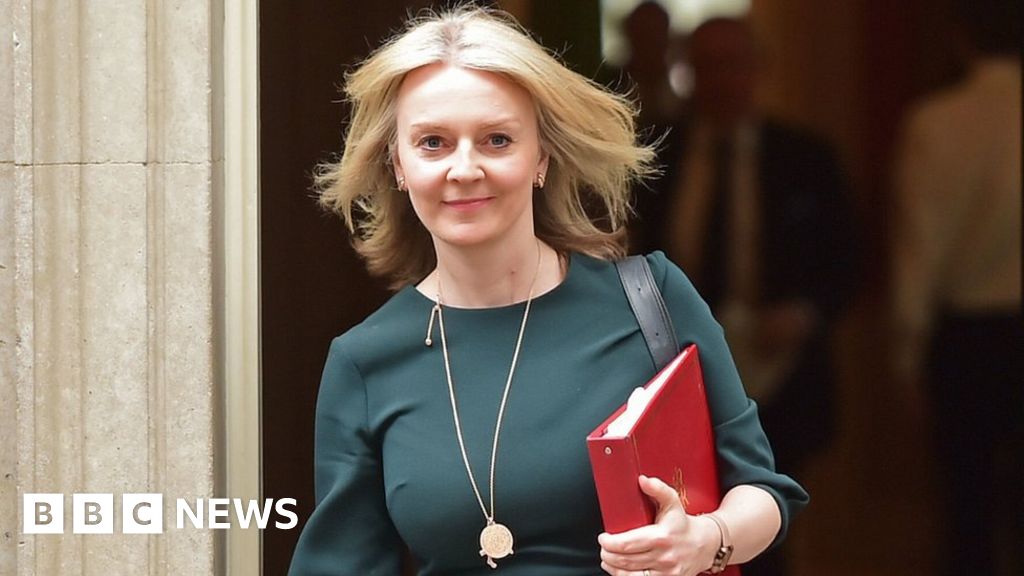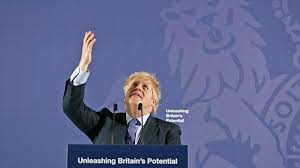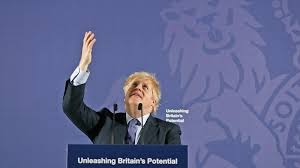The new PM’s ten conundrums

By David Fellows
The successful PM candidate will face a series of conundrums as he/she ascends to the highest political office in the UK. It will be a daunting task and the contest has provided opponents with so much ammunition.
Ten key issues
The battle for leadership could have been more useful if it had addressed models of government or economics or service delivery or even styles of leadership but it was rarely about any of these. So let us examine ten of the key issues the new PM will face, some already in play and some that remain largely unspoken.
PM & Cabinet
We’ve got a collegiate cabinet system with cross-government working facilitated by cabinet colleagues and overseen by a PM who clarifies direction, adds impetus, refreshes the machine and does the communication thing.
So ideally the new PM brings in people who are good at learning, have interesting ideas, knowledge, drive, practical insight and of course a collegiate mindset and a willingness to help others integrate and develop. How to create the right team?
Strategy & Delivery
The contestants will no doubt be discussing with potential ministerial candidates their vision with reference to a selection of portfolios. What about new or refined models of cabinet government, the civil service or the health service. The latter two are clearly in deep organisational and professional trouble of all kinds. Some bold and honest thinking is required (see later for health). What about radical views on deregulation, service efficiencies and service reductions.
Sometimes the strategy is right and delivery needs sharpening. Delivery is a perpetual problem. The idea that outsourcing or agency status eliminates Government responsibility is nonsense, even managerial responsibility rests with government if things start to go seriously wrong. If we embrace this how could it change things?
Growth & Innovation
Growth-directed investment incentives are mentioned from time to time including infrastructure projects that could be part of the solution. Of course the Government are already buying innovation in many fields: health, defense, power generation, electronics. We in the UK are not necessarily benefiting from the growth potential of this spending because we often buy from specialist companies in other countries. We tend to believe in going to the market but not market shaping. So we reduce taxes or invest in public services and expect spending to take place here when it actually it ends up taking place somewhere else, not always but perhaps too often. But who is keeping the score and thinking through the results?
Resilience & Trade
We do trade deals to broaden our markets to generate business for the UK and provide a diversity of suppliers for imports offering price competition and resilience. To an extent it offsets the hostility of EU countries to our departure from the EU but its purpose is much broader than that.
We also talk about internal resilience but resilience in what? The security services think we have Huawei sorted and can buy non-critical products. Of course if you don’t make PPE then in a pandemic, PPE becomes a critical product. In fact anything you don’t make to some extent is a vulnerability because, as we begin to see, almost anything that comes from outside our borders can be denied us through deliberate or chance logistical problems, skill shortages or scarcity of commodities that we left others to grow or source. So we become entirely self-sufficient? No, but we must energetically encourage diversity in UK business activity giving us a greater readiness to understand and respond to opportunities and threats.
We pride ourselves on our innovation but entrepreneurship is the key to development and it is development that gets the wheels spinning and produces a virtuous cycle with iterations of product innovation leading at some point to a commercial breakthrough. It is entrepreneurship that keeps the cycle going and nurtures the vision of generating a major business. We probably don’t appreciate and encourage entrepreneurship enough.
I haven’t mentioned agriculture, do we really want it? The lack of interest in the development of this sector is astonishing, a point Jeremy Clarkson makes only half in jest.
This whole field needs clarity about how we see growth being created and how the state may help or hinder a successful outcome. Are we prepared to engage in such thinking or are we frightened to be charged of attempting to create a command economy?
Tax Cuts & Modelling
The cost of petrol is astronomic and is hitting some people and businesses more than others in a haphazard manner. Without time to adjust this can be catastrophic (we are a highly mobile society). Is it not sensible to take some of the tax off petrol given that the soaring price draws in more revenue than could have been expected even six months ago (there may be some progress on this as I write but what is the economic plan behind it?).
If we are to achieve economic growth about which we are all so keen, why deter the relocation of businesses into the UK and the retention of businesses here by increasing the current rate of corporation tax (lowering it would be preferable but let’s not get carried away). Instead we seem to be set on raising it with the intention of reducing it almost at once (unless I misunderstand the intention).
Borrowing is an alternative to taxing but we already have huge debts, inflation is causing havoc, more borrowing means even higher interest rates and a mounting debt pile. Supply chains are still stretched and could get tighter, we are financing an indefinite war, a recession looms in the EU, trade hostility is brewing with the EU and even the US (Federal rather than individual states), spending pressures abound, so what scale of economic stress, deficit and debt burden we are walking towards? What are the tolerances envisaged in the various iterations of the BoE and Minford economic models, are they all reassuring in their results?
Health & Defense
This is the coming issue and the secret is…we have enough money for neither.
Health is literally infinitely expensive and everyone involved needs someone to blame and that is always going to be the Government unless the system can embrace other sources of authority and cash to share the pressure. Most alternative systems involve insurance schemes and privately run hospitals. There are some very good systems no more expensive than our own, some less expensive. Ours is not amongst the best by any means and is on the verge of breaking the state politically and financially.
The problems include explaining the situation rationally and calmly, choosing the right model, managing the transition and defining the state’s role and residual financial responsibilities. The Opposition, supported by the BBC, will go to war over this which is why the PM must prove to be a hugely effective communicator. The Opposition will secretly hope that the Government (I am assuming the current Government stays in power long enough to do this of course) succeeds in making an effective and radical change but is mortally wounded in the process. This is the challenge!
Assuming we capitalise on the new arrangements to renew UK medical practice, and goodness knows it needs it, we could generate a boom in UK-based medical innovation. Good for health, good for business, good for UK-based international trade if done well.
Similarly we do not have much extra money right now for defense. But could we do more to grow our advanced engineering, telecommunications, artificial intelligence, UAVs, technical skills and products out of the defense budget with the resulting economic growth supporting our defense aspirations? It is not a total solution but perhaps it needs to be more of the way forward.
Housing Targets & Birthrate
Well the plan seems to be to abandon targets. Housing will just appear where it is needed. Basically Opposition seats. No effective policy, rapidly declining birth rate/tax payers.
Regions v Greater South East
Is the next government going to tackle regional economic growth in a concerted manner or just call everything in the regions levelling up and allow the golden triangle to roar away into the sunset as the appendix to the Levelling Up White Paper suggests (see previous note[1]). Levelling up opportunity for future generations (see previous note[2]) through economic growth is the only game for the regions. Will Government ever be prepared to accept such an anti-establishment path? Probably not.
Boris the Good v Boris the Bad
Brilliant communicator, great hair, short on hard truths, short on strategy, short on focus, difficult to control, easily led astray – but with the right support he was probably unbeatable. Yes it was a big ask. It’s virtually calling for grown-ups to exist in politics and the civil service at the same time and in the same place … hence we are where we are. With all this in mind and reflecting on the earlier issues, the PM really does need to think practically not just politically about his/her appointments from the perspective of creating a functioning government that compensates for their own shortcomings. Sage and impartial advice required.
So
The world is not in a good place. Apart from a multitude of global issues to address we need a government that has the courage to tell the country that it can never make all the right decisions for everyone all the time, or indeed at any time. At best it can tackle a limited number of things reasonably well and only then in the event that it makes the best possible choices. Otherwise overload is always ready to destroy leadership and nothing will be done well. Our personal choices define us yet state dependency is a constant prospect. Is modern politics capable of drawing a line under its competency?
PMs expect to be shot at by all and sundry and are never disappointed. Their ambition is soon reduced to survival. It is tempting to assume that neglecting hard problems and hard truths is inevitable and this results in false promises. Is this really the only way forward? Can our next PM plot a different course?
David Fellows is an accountant. He worked extensively in UK local government, was an early innovator in the use of digital communication in UK public service and led a major EU project supporting the use of digital technology by SMEs. He became an advisor on local government reform in the UK Cabinet Office and an international advisor to the South African National Treasury. He writes on public financial management and digital communication particularly in relation to developing countries: david.fellows@pfmconnect.com
[1] See: http://blog-pfmconnect.com/levelling-up-white-paper-commentary-time-to-deliver/
[2] See: https://blog-pfmconnect.com/levelling-up-opportunity-for-future-generations

